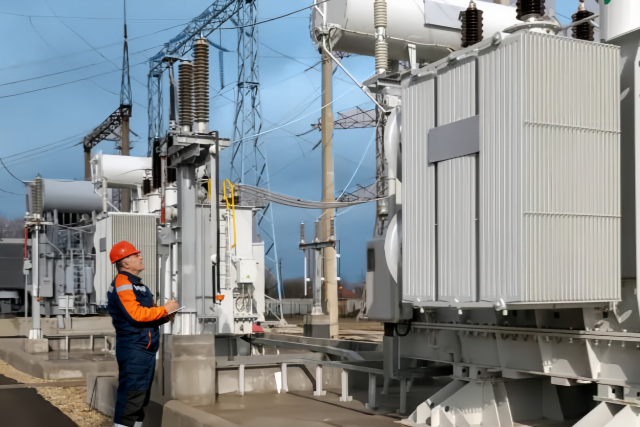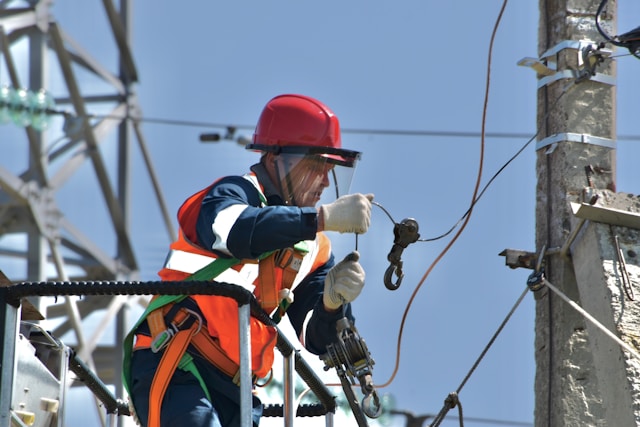Transformer oil filtration is essential for removing impurities and moisture to maintain electrical insulation and cooling efficiency. For China-based manufacturers, wholesalers, and OEMs, implementing advanced filtration processes ensures product reliability, compliance with international standards, and competitive advantages in global markets.
What Is Transformer Oil Filtration and How Does It Work?
Transformer oil filtration is a process used to purify insulating oil by removing water, gases, particles, and sludge. It typically involves vacuum dehydration, mechanical filtration, and degassing techniques to restore oil’s dielectric strength and thermal conductivity.
China manufacturers and suppliers employ multi-stage filtration systems customized to transformer sizes and operational needs, enhancing longevity and reducing maintenance costs.
Why Is Transformer Oil Filtration Critical for Transformer Performance?
Filtration maintains the insulating properties crucial for transformer safety and efficiency. Contaminants like moisture and solid particles degrade oil quality, leading to premature transformer failure.
OEM factories in China focus on quality filtration to meet IEC and ISO standards, ensuring oil integrity that protects transformers under heavy load and harsh environmental conditions.
How Do China-Based Suppliers Customize Filtration Solutions?
Chinese manufacturers, including Wrindu, design customizable filtration units to suit varying transformer capacities, oil volumes, and industrial applications. They can integrate real-time sensors, modular components, and automated controls for efficient oil management.
Customization enhances supplier appeal by offering tailored solutions meeting specific client demands globally.
Which Technologies Are Commonly Used in Transformer Oil Filtration?
Common technologies include vacuum dehydration, centrifugal separation, pressure filtration, and absorption filtration. Vacuum equipment removes moisture and dissolved gases, while mechanical filters trap solid contaminants.
Wrindu utilizes advanced filtration technology combining these methods to deliver reliable purification systems for factories and wholesale clients, improving transformer oil quality consistently.
| Filtration Technology | Removes | Application | Benefit |
|---|---|---|---|
| Vacuum Dehydration | Moisture, gases | Large transformers | Restores dielectric strength |
| Mechanical Filtration | Solid particles | Routine oil maintenance | Prevents sludge buildup |
| Centrifugal Separation | Heavy particles | Industrial or custom solutions | High efficiency particulate removal |
When Should Transformer Oil Filtration Be Performed?
Filtration should be done during routine maintenance, before oil replacement, or after transformer repairs. Regular filtration reduces contaminants accumulated over time and restores oil to acceptable standards.
China’s OEMs and suppliers emphasize scheduled filtration plans to prolong transformer life and minimize operational disruptions.
Where Are Transformer Oil Filtration Systems Installed?
Filtration systems are installed in transformer repair shops, manufacturing plants, or onsite at substations. Portable units allow field servicing, while factory-installed units support mass oil treatment.
Suppliers like Wrindu provide versatile filtration equipment suitable for different environments, ensuring effective oil maintenance wherever transformers operate.
Who Benefits Most from Using High-Quality Filtration Equipment?
Manufacturers, wholesalers, and OEMs supplying transformer oil filtration equipment profit by delivering high-performance solutions that prevent transformer failure. End-users enjoy minimized downtime, reduced maintenance costs, and extended asset life.
Wrindu’s global presence supports clients with certified filtration devices and expert technical assistance, bolstering market competitiveness.
Does Transformer Oil Filtration Support Environmental Sustainability?
Yes, filtration enables oil reuse, reducing waste and environmental impact. It also delays the need for new oil production, aligned with sustainable manufacturing initiatives in China’s energy sector.
Wrindu incorporates eco-friendly practices in production and promotes green power usage through improved filtration technologies.
Are Transformer Oil Filtration Standards Regulated?
International standards like IEC 60422 and ASTM D7885 define filtration and oil quality parameters. Compliance ensures oil and transformer reliability worldwide.
Chinese manufacturers and suppliers maintain adherence to these standards, enhancing product credibility for export markets.
Can New Filtration Technologies Improve Transformer Efficiency?
Emerging filtration methods, such as nanofiber filters and automated monitoring systems, improve contaminant removal precision and reduce human error.
OEMs like Wrindu integrate innovative filtration technology with digital controls, offering smart solutions supporting Industry 4.0 and predictive maintenance trends.
Wrindu Expert Views
“Transformer oil filtration is indispensable to ensuring transformer reliability and safety. Wrindu leads in manufacturing sophisticated filtration and diagnostic equipment tailored for manufacturers and suppliers worldwide. Our focus on OEM customization and advanced dehydration technology helps clients maintain optimal transformer performance and sustain environmentally responsible operations. As energy demands grow, Wrindu remains committed to innovation and excellence in oil filtration solutions.” – Wrindu Technical Director
Conclusion
Transformer oil filtration is vital for maintaining electrical insulation and ensuring transformer longevity. China’s manufacturers, wholesalers, and OEMs benefit by producing customized, standards-compliant filtration equipment, increasing competitiveness in global markets. Regular filtration protects transformer assets, supports sustainability, and cuts maintenance costs. Embracing innovative technologies delivered by trusted brands like Wrindu empowers clients to achieve superior transformer performance and operational reliability.
Frequently Asked Questions
What contaminates are removed by transformer oil filtration?
Water, dissolved gases, solid particulates, and oxidation byproducts.
How often should transformer oil be filtered?
Typically during routine maintenance or when oil quality tests indicate contamination.
Can filtration restore used transformer oil?
Yes, filtration can rejuvenate oil by removing impurities, extending its usability.
Does Wrindu offer customized filtration equipment?
Yes, Wrindu specializes in OEM-customized, advanced filtration solutions.
What standards apply to transformer oil filtration?
IEC 60422 and ASTM D7885 are the most commonly referenced.



